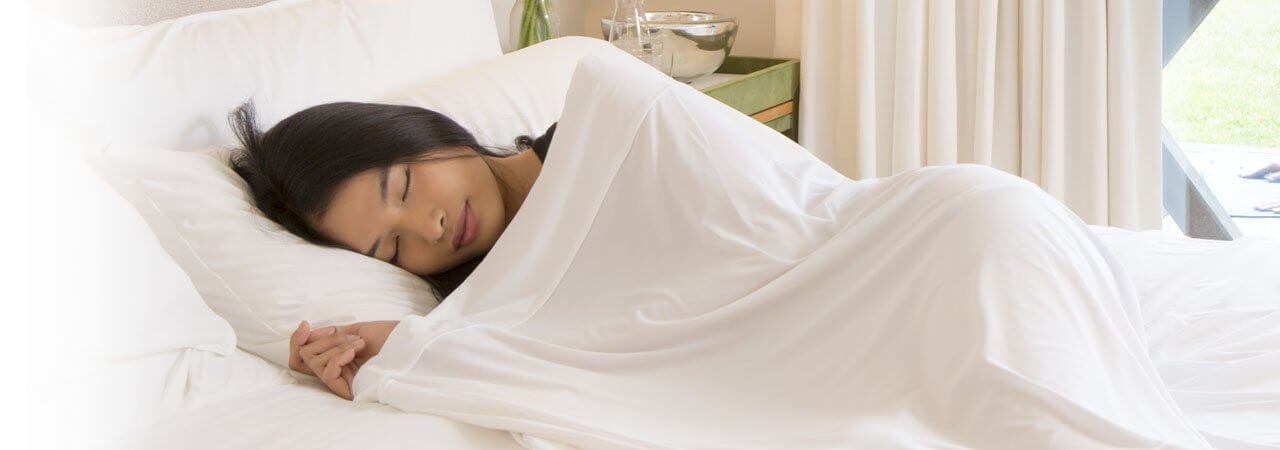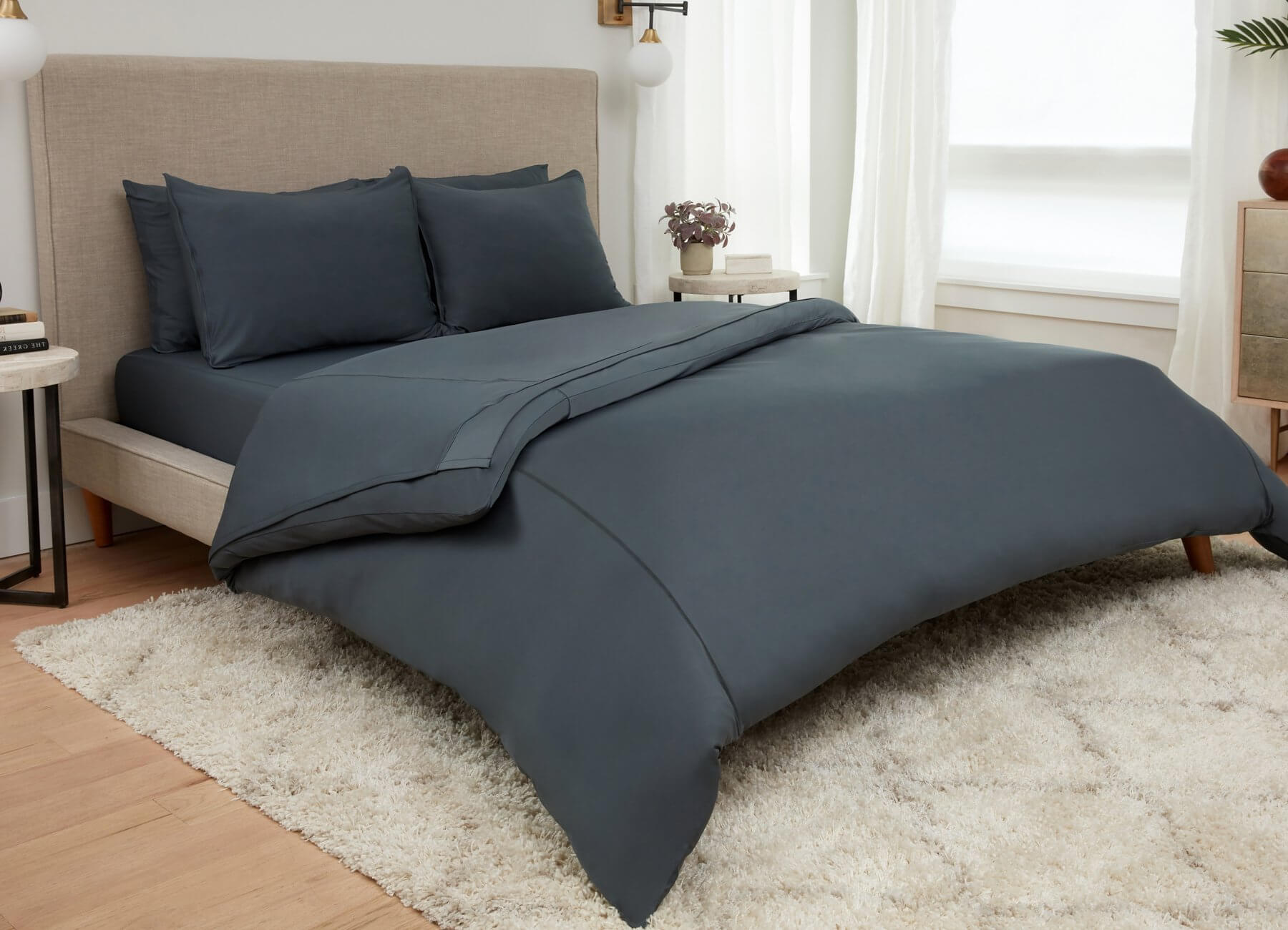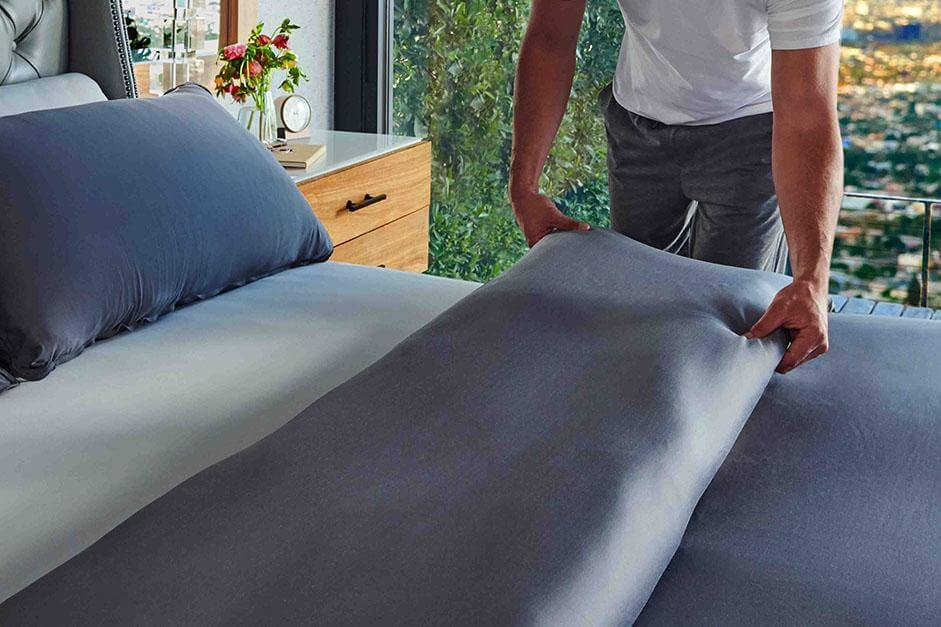According to the Centers for Disease Control and Prevention, for most people, the risk of developing severe illness from the new coronavirus that causes COVID-19 is thought to be low. The CDC recommends taking simple, everyday steps to avoid catching or spreading respiratory diseases, including COVID-19. These include covering your cough or sneeze, disinfecting commonly used surfaces and thoroughly washing or sanitizing your hands. Call your doctor and stay at home if you are sick. Get more information at CDC.gov/coronavirus or contact your state's Department of Health.
Have you ever wondered why it's so hard to get the sleep you need when you're sick? Symptoms tend to get worse at night, which explains part of the problem. Lying down flat and taking all kinds of medicine aren't guaranteed to help.
The best way to fight cold or flu symptoms is sleep. When you sleep, your fever tends to rise, and your body goes into full repair mode. A fever is your body's way of fighting the illness. If you don't get that sleep, are you getting better?
With the pandemic of coronavirus (COVID-19) top of mind, it's helpful to review general sleep practices and safety tips when you're feeling under the weather. Here are several suggestions for getting a good night's rest so your body can get back to normal, quickly.
Go to Bed Early

The best way to begin a night's sleep when you're sick is to start early. The earlier you get to bed, the more Z's you'll catch. You can take all the medicine you want, but resting is what's going to help get your immune system right again. The earlier you go to bed, the more likely you are to get the restorative sleep you need.
Wash Your Hands
Washing your hands frequently with soap and water is one of the best ways to keep yourself healthy and stop the spread of infections such as the coronavirus. It's not the soap itself that kills germs. Soap has chemical properties that lift dirt and grime off your skin, making it easier to scrub off with water. Most experts recommend washing your hands for at least 20 seconds. If you're not near any soap or water, hand sanitizer is your next best option.
Clean or Replace Your Pillows
When was the last time you washed your actual pillow, not just the pillowcases? Did you even know you were supposed to do that? The anxiety surrounding coronavirus is an opportune time to throw your pillows in the washing machine because you could be sleeping on bacteria and yeast for eight hours a night. Our cooling pillows are easy to clean. Just machine wash them cold, use non-chlorine bleach as needed, and tumble dry low.
Is it time to replace your pillows? Industry experts suggest replacing your bed pillows every one to two years depending on the quality of materials and usage.

Social Distancing
Whether you have the sniffles or you're trying to avoid getting them in the first place, it's best to avoid crowds and stay at home as much as possible. Viruses spread much easier whenever people congregate, whether it be at the movie theaters, offices, schools, or public transportation. Take advantage of your work-from-home policy, if applicable. Also, consider trying delivery services to get your groceries and essentials.
Be Aware of Aspiration During Sleep
Dr. Bruce L. Davidson, a pulmonary physician, and researcher in Seattle, recently wrote an op-ed for CNN explaining that around half of people during sleep are susceptible to aspiration. Aspiration means you're breathing in foreign objects — such as the virus — into your airways.
According to Davidson, "Coronavirus infects cells below the voice box, in the airways and deep in the lungs, unlike flu viruses which start with your nose and throat. Other than via tiny particles inhaled in air, coronavirus reaches those cells via fluid in the nose or throat that sneaks past your voice box (this is called aspiration) and slides down your windpipe, or trachea."
Davidson suggests, along with washing your hands and face, to avoid alcohol and sedative medicine before sleep since they can increase aspiration. He also highly recommends cleaning any sleep apnea devices regularly and storing them in a safe place where no one can sneeze or cough on them.
Prop it Up
Did you know when you lie flat, your sinus pressure builds up more quickly? According to Sinus Solutions of South Florida, when you lie down, the blood rushes to your head a lot easier, pumping blood to the blood vessels of your sinuses. This causes pain and pressure, and in turn, gravity isn't doing its thing to help drain your sinuses. Also, lying flat will cause you to feel lightheaded and congested when you wake up in the morning. To sleep comfortably, try propping yourself up with a couple of our cooling pillows. Elevating your head will keep your sinuses from throbbing, and you'll get the proper sleep you need while your body works to heal itself.
Eat Light

There are a few standard rules when it comes to eating right before bedtime. Never eat too late at night. If you do, keep it light, especially when you're sick. A cup of soup is a good option if you need to eat something. Our bodies digest warm foods like soup more efficiently, and there's no doubt we all crave a little bit of warm broth when we're under the weather. Ladle your favorite soup into a bowl and brew a cup of tea to soothe your throat and your soul.
Keep it Dark, Keep it Quiet, and Stay Cool
Shut the lights off and get cozy. Yes‚ this even means unplugging from your devices. Disconnecting from technology is already a suggested tip for getting a better night's rest. It makes even more sense to apply that rule when your body's working overtime to fight off an infection. To accompany the darkness, make sure it's calm and quiet. The less sound, the better so you can get the tranquility you need. Lastly, keep your room cool so you can prevent tossing and turning. Sleeping with breathable, cooling technology such as our Original Performance Mattress Pad may contribute to a better night's rest on those sick, sleepless nights.
Keep Your Bedside Stocked
Keep a box of tissues next to your bed so you can blow your nose and instantly get back to sleep. Getting up and walking around will only wake your body up. A bedside humidifier is another useful option. The warm, moist air helps clear out the mucus in your sinuses. If you want to take a holistic approach, try rubbing peppermint oil on your pillow or temples. It acts as a vapor rub and can open up your nasal passages. Be careful not to use too much since peppermint can keep people alert. Lastly, keep a tube of nasal spray by your bedside. Decongestants can make you feel agitated, so use a few pumps of nasal spray before reaching for another dose of medicine.
Don't Share the Bed (or Your SHEEX)

If you usually share a bed, you might want to sleep alone on those sick nights. You don't want your partner to catch what you have, because you'll end up losing sleep while they're tossing and turning with the flu. Be sure to keep your Original Performance Sheet Set separate and wash them for a long cleansing cycle once you're feeling better.
We know it's not fun to sleep while your immune system has other plans. With these tips, you can master a good night's rest no matter how many boxes of tissues you have to go through.
























